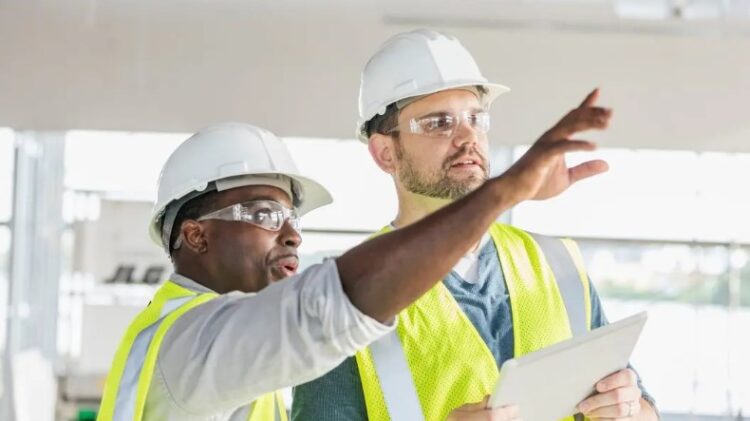Starting a new construction or home renovation project might be intimidating. Despite being certain of the style you want for your home, you might not be very knowledgeable about the details, such as creating designs, getting building permits, and locating workers and materials. In that case, a general contractors can be quite useful.
Who Is a General Contractor?
A general contractor is a qualified member of the building trade who manages a project. A good general contractor serves as the focal point for communication between the structural engineer and architect, the construction crew, and the government agency responsible for issuing the required permits and conducting code compliance inspections.
Some general contractors work for huge construction firms, while others operate individually and employ subcontractors to undertake jobs like roofing, carpentry, plumbing, and electrical work.
What Does a General Contractor Do?

The top general contractors are in charge of all aspects of a construction project. A general contractor performs the following tasks, among others:
- Creates a timeline and budget: The general contractor talks with the homeowners about establishing a reasonable spending limit and deadline.
- Closely collaborates with the architect: A good general contractor keeps in constant contact with the architect for the building, who may even be supplied by the contractor’s company.
- Cooperates closely with the interior designer: The general contractor, if necessary, will keep an eye on the interior designer, who may even be an employee of the contractor’s company.
- Applies for building permits: The general contractor submits applications for building permits and attends inspections of the building by the city, county, or other supervising body to ensure compliance with rules.
- Construction subcontractors: The general contractor may hire carpenters, electricians, plumbers, roofers, painters, tile and floor experts, ironworkers, and HVAC specialists as subcontractors.
- Possibly engage a project manager on-site: The project manager oversees the construction itself and makes sure all building regulations are always followed.
- Maintains the project’s timeline and budget: Until your job is finished, the general contractor won’t go on to the next one.
10 Tips for Working With a General Contractor

Make sure you have the best contractor to manage the job before you start any large initiatives.
1. Use referrals first: Don’t only choose a contractor based on their advertising. Look for unbiased reviews of the job performed by a local contractor by asking for referrals. Also, ask those you know who work in the building or real estate sectors for their opinions.
2. Look for authorized contractors: Your typical everyday handyman may not have a contractor’s license, but larger projects nearly always require the knowledge of a certified professional with years of experience. Most communities do not require you to utilize a licensed contractor. You may be protected if an accident occurs on the job site thanks to the liability insurance and worker’s compensation that licensed contractors carry for their teams.
3. Request to see images of related projects: It’s crucial to ensure that you’ll be pleased with the finished product before choosing a contractor for a significant kitchen or bathroom remodel. Examine the seams of surfaces—the points where walls meet one another or where a wall meets a ceiling—when studying images of previous work. You should hire a different contractor if you notice signs of sloppy work; you want someone who pays attention to detail.
4. Obtain numerous quotes: It could be challenging for first-time homeowners to estimate the cost of construction or home remodeling projects. To obtain a decent indication of the going fee, request at least three quotations from various contractors.
5. Get everything in writing after agreeing on a price and a deadline: Once you and your contractor or home builder have a formal agreement outlining the project’s total cost, the start date, and the completion date, work shouldn’t start. Be aware that your contractor will probably increase the price to compensate for additional work if you change the order of the project—for example, by relocating a wall or changing shelving after it has started.

6. Work with the contractor to choose finishes: Finishes are the decorative accents like faucets, sinks, countertops, lighting fixtures, doors, and doorknobs that you’ll probably want to choose yourself. A skilled contractor will know what to use, and a construction inspector will make sure they are building to code, so you don’t need to dive into the nitty gritty of basic materials like concrete, steel bars, and structural timber.
7. Be prepared to put down money: The majority of contractors want money in advance before beginning any work. This deposit serves as both a sign of your commitment and as money for the contractor to use to buy the initial building materials. A minimum of 10% and a maximum of 25% of the total cost should be paid upfront. A warning sign is any prepayment that is greater than 25%.
8. Establish a payment plan: You’ll have to make extra payments after the down payment all through the building phase. Never make the last payment until the job has been finished and received local inspector approval.
9. Consider them a participant in the endeavor: The greatest general contractors collaborate with their customers as partners. They never try to intimidate their clients into purchasing goods or services they do not require, and they always pay attention to the deadline and the allocated money. In exchange, be kind to all construction site workers and treat your general contractor like the skilled craftsperson that they are. Access to indoor restrooms, as well as lots of water and snacks, helps promote respectful interactions.
10. Establish limits: If your construction project isn’t nearly finished, don’t let your contractor start working on their next project. Detailed accounting and documentation should be requested if there are expense overruns. You’ll position yourself for a courteous, fulfilling experience from beginning to end if you are consistently polite but assertive.
Working with general contractors will become easier with the above tips. These tips will help you make the right choice when working with general contractors.
 Hi Boox Popular Magazine 2024
Hi Boox Popular Magazine 2024



